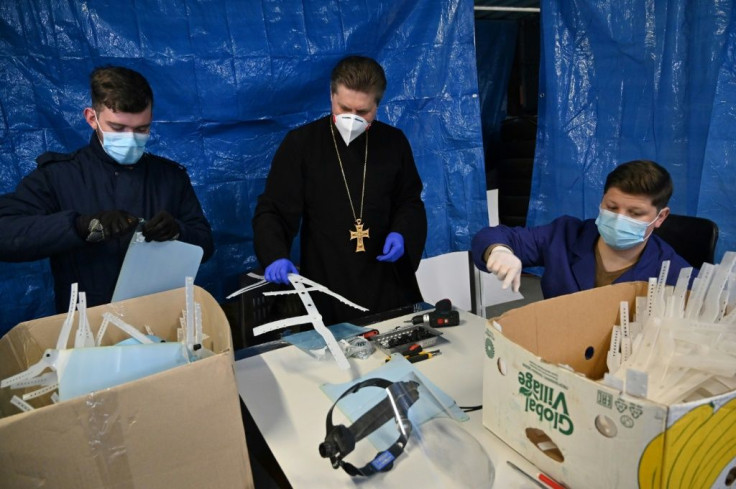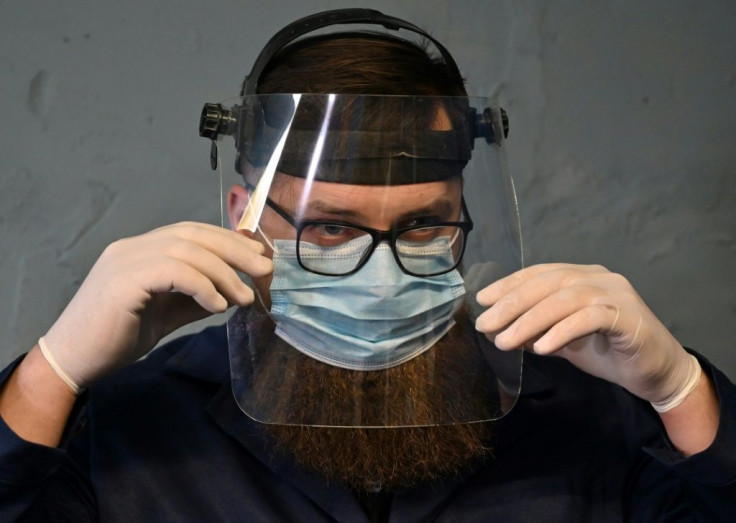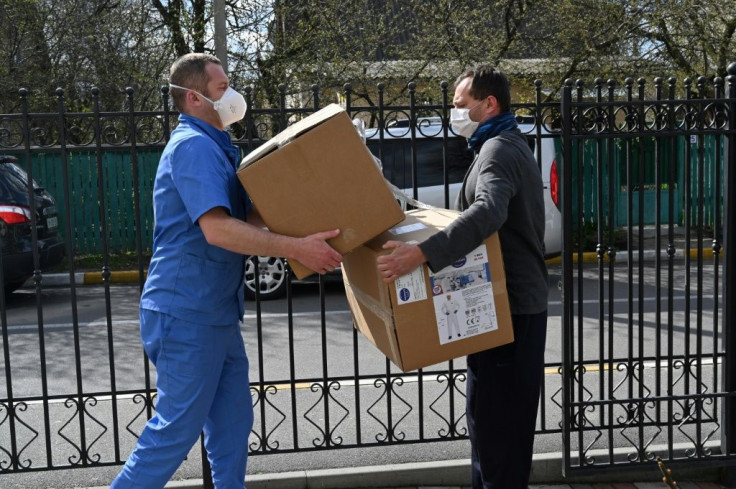Ukrainian Priests Make Visors For Anti-virus Fight
A bearded Orthodox priest carefully assembles a plastic visor as he works with a group of volunteers to provide Ukrainian medics with much-needed personal protective equipment.
The group is working in a shed in the grounds of Kiev's green and blue-domed Vydubychi monastery, which was founded in the 11th century.
Their mission is a vital one: to protect medics in the fight with the novel coronavirus.
In the small makeshift workshop, Father Mykolai, still wearing a black cassock and a large gold cross on a chain, fixes straps to a visor using an electric screwdriver.
The coronavirus "is testing our ability to cooperate around the world, to help one another," says the 46-year-old priest, raising his voice against the sound of a cutting machine.

The project manager, 30-year-old Roman Kholodov, tries on one of the face shields over his bushy beard.
"You can adjust the height and width. And most importantly, they are light," he says enthusiastically.
With his trendy hairstyle and plaid shirt, Kholodov has a hipsterish air. He is not a priest himself but heads the social services department of the newly created independent Ukrainian Orthodox Church.
He and the group of volunteers at the picturesque monastery started out by making high-alcohol hand-sanitiser that they bottled and gave out to parishioners and doctors.
After making 20,000 bottles and running out of ingredients, the small team bought a laser cutting machine to produce the plastic face shields that doctors wear over facemasks as an additional layer of protection.

Their small workshop has already made around 50 face shields and they have delivered some to a Kiev hospital.
"The doctors were so happy!" Kholodov said with a smile.
"The life of every doctor is vitally important. A ventilator is no use if there are no staff to operate it."

Doctors are struggling to cope with the pandemic in the post-Soviet country that is one of the poorest in Europe.
A lack of personal protective equipment means medics are at high risk of infection and make up almost 20 percent of confirmed cases.
To make the situation even worse, government purchases of protective equipment were blocked for weeks due to infighting between officials.
And when the authorities finally managed to obtain limited supplies from China, private donors had to cover most of the costs.
Andriy Levkivsky, the head doctor at a clinic in Irpin, a small town outside Kiev, is one of the few medical professionals to have spoken out in public about the problems.
In late March, his clinic, which has 30 medics on staff, received a delivery from the authorities comprising simply of five mercury thermometers, two bottles of toilet cleaner and five hazmat suits.
"We have a problem with state supplies and therefore we are asking for help from volunteers and the local authorities," Levkivsky told AFP.
This week, a charitable foundation called Svoi, or Ours, gave the clinic 500 hazmat suits, enough to last them almost a month.
"Some doctors are happy just to receive simple surgical masks," said Iryna Koshkina, who heads the foundation.
The foundation has spent 30,000 euros ($32,600) in a month to buy protective equipment for five hospitals.
When the ongoing war with the Russian-backed separatists in the east of the country began six years ago, Koshkina was among thousands of volunteers who helped to buy equipment for the underfunded Ukrainian army.
Helping doctors fight a very different battle, she says she feels a strange sense of deja vu.
"In 2014, the whole country was collecting money to buy helmets and bullet-proof vests for soldiers."
"Today, we are collecting money to protect doctors."
© Copyright AFP 2024. All rights reserved.





















